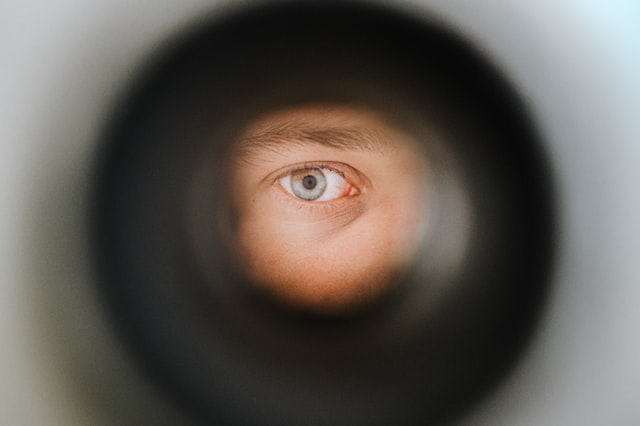Paranoia and schizophrenia are two mental health disorders that can have similar symptoms but different causes. While paranoia is caused by excessive fear, anxiety, and suspiciousness, schizophrenia is a complex disorder caused by chemical imbalances in the brain. Both require medical attention for treatment, so if you or someone you know is exhibiting signs of either condition it’s important to talk to your doctor about getting help. With the right care both conditions can be managed and those suffering from them can lead fulfilling lives.
What is paranoia?
(Photo by Dasha Yukhymyuk on Unsplash )

Paranoia is a mental health condition characterized by delusions of persecution, grandeur, or threat. These delusions can be extremely distressing and disruptive to a person’s life. Paranoid thoughts may also lead a person to act in ways that are harmful to themselves or others. Paranoid psychosis is a serious mental health condition that requires treatment.
What is schizophrenia?
(Photo by Evelyn Chong : )

Schizophrenia is a mental disorder that affects a person’s ability to think clearly, manage emotions, make decisions, and relate to others. People with schizophrenia may hear voices that are not there, believe other people are reading their thoughts, or have false beliefs.
The difference between paranoia and schizophrenia
There are a few key differences between paranoia and schizophrenia. For one, paranoia is characterized by a single symptom: delusions of persecution. People with paranoid personality disorder may believe that others are constantly out to get them, plotting against them, or talking about them behind their back. They may go to great lengths to avoid contact with other people, and may become very suspicious and guarded.
In contrast, schizophrenia is characterized by a range of symptoms that can include delusions, hallucinations, disorganized thinking, and changes in mood and behavior. While people with paranoid personality disorder may only experience one symptom (delusions of persecution), people with schizophrenia may experience a range of symptoms that can make it difficult to function in day-to-day life.
Causes of paranoia
The cause of paranoia is not fully understood, but it is thought to be related to a combination of environmental and genetic factors. Paranoia may be more likely to develop in people who have a family history of mental illness, and those who have experienced trauma or stress.
Causes of schizophrenia
There is no one clear answer to the question of what causes schizophrenia. Instead, a range of genetic and environmental factors are thought to play a role in its development. A person’s genes and their family history may increase their risk of developing the condition. For example, if someone has a parent or sibling with schizophrenia, they are more likely to develop it themselves. Certain environmental factors may also trigger the condition in people who are vulnerable to it. These triggers can include viral infections, drug use, psychological stress, or trauma.
Treatment for paranoia
There are a variety of treatments available for paranoia, depending on the severity of the condition. For milder cases, therapy and medication may be enough to help the person manage their condition. For more severe cases, hospitalization may be necessary.
Medication: antipsychotic medications can help reduce paranoia by reducing the activity of certain chemicals in the brain
Therapy: cognitive behavioral therapy (CBT) can help a person identify and change negative thinking patterns that contribute to paranoid thoughts
Hospitalization: in severe cases, hospitalization may be necessary to keep the person safe and to provide around-the-clock care
Treatment for schizophrenia
The two most common treatments for schizophrenia are medication and psychotherapy.
Medication can help reduce the symptoms of schizophrenia. The most common type of medication used to treat schizophrenia is antipsychotic medication. Antipsychotic medication can help to reduce the positive symptoms of schizophrenia, such as delusions and hallucinations.
Psychotherapy can also help to treat the symptoms of schizophrenia. Cognitive behavioral therapy (CBT) is a type of psychotherapy that can help people with schizophrenia to learn new skills and coping mechanisms to deal with their symptoms.
How does one know if he has schizophrenia?
There is no one easy answer to this question. If you are concerned that you or someone you know may have schizophrenia, it is important to seek professional help. A trained mental health professional can administer a variety of tests to help make a diagnosis.
Some common symptoms of schizophrenia include:
- Delusions: Beliefs that are not based in reality and cannot be changed by facts or logical reasoning. Examples might include believing that you are being persecuted or that you have special powers or abilities.
- Hallucinations: Seeing, hearing, smelling, tasting, or feeling things that others do not experience. For example, hearing voices or seeing people who are not really there.
- Disorganized thinking: Having trouble focusing or paying attention, speaking in an abnormal way (e.g., jumping from one topic to another), or having thoughts that stop and start abruptly.
- Negative symptoms: Loss of interest in formerly enjoyable activities, withdrawal from social interaction, flattening of emotions (i.e., appearing emotionless).
It is important to note that these symptoms can vary in intensity and may come and go over time. Not everyone who experiences these symptoms will be diagnosed with schizophrenia – some people may have another mental illness or medical condition causing their symptoms. If you are experiencing any of these symptoms, please see a mental health professional for evaluation and diagnosis.
Can you be paranoid without schizophrenia?
Yes, it is possible to experience paranoia without having schizophrenia. Paranoia is a type of thought pattern or behavior that involves extreme and irrational suspicion or mistrust of others. It can be a symptom of several different mental health conditions, including:
- Paranoid personality disorder: This is a personality disorder characterized by a pervasive distrust and suspicion of others, often leading to social isolation.
- Delusional disorder: This is a type of psychotic disorder characterized by the presence of one or more delusions, which are false beliefs that are firmly held despite evidence to the contrary. Paranoid delusions are a common type of delusion in this disorder.
- Post-traumatic stress disorder (PTSD): This is a mental health disorder that can develop after experiencing or witnessing a traumatic event. People with PTSD may experience paranoid thoughts or beliefs related to their traumatic experience.
- Substance-induced paranoia: Certain drugs, such as methamphetamine and cocaine, can cause paranoia as a side effect.
It’s important to note that experiencing paranoid thoughts does not necessarily mean that a person has a mental health disorder. However, if paranoia is causing significant distress or interfering with a person’s ability to function in their daily life, it may be helpful to speak with a mental health professional for assessment and support.
What are the first signs of paranoia?
The first signs of paranoia can vary depending on the individual, but may include feeling suspicious or untrusting of others, feeling like you are being watched or followed, or feeling like you are in danger. If you experience any of these symptoms, it is important to see a mental health professional to rule out any other mental health conditions and get treatment if necessary.
What triggers paranoid schizophrenia?
The causes of paranoid schizophrenia are not fully understood, but research suggests that it is likely a combination of genetic, biological, and environmental factors. There is no one specific trigger for paranoid schizophrenia, but several factors have been identified as potential contributors, including:
- Genetics: Studies have found that people with a family history of schizophrenia are at higher risk of developing the disorder, and specific genetic mutations have also been linked to an increased risk of developing schizophrenia.
- Brain chemistry: Abnormalities in certain brain chemicals, such as dopamine and glutamate, have been associated with schizophrenia.
- Environmental factors: Exposure to certain environmental factors, such as prenatal stress or infection, may increase the risk of developing schizophrenia. Substance abuse and stressful life events may also contribute to the development of the disorder.
- Neurodevelopmental abnormalities: Disruptions in brain development during early childhood or adolescence may increase the risk of developing schizophrenia.
It’s important to note that while these factors may contribute to the development of paranoid schizophrenia, not everyone who experiences them will develop the disorder. The symptoms of paranoid schizophrenia typically emerge in late adolescence or early adulthood and may include delusions, hallucinations, disordered thinking and speech, and social withdrawal. Treatment for paranoid schizophrenia often involves a combination of medication and therapy to manage symptoms and improve overall functioning.
What is the main cause of paranoia?
There is no one answer to this question as paranoia can be caused by a variety of factors, both psychological and environmental. However, some experts believe that the main cause of paranoia is an overactive fear response. This means that the person experiences a heightened sense of fear or anxiety in response to certain stimuli. This can be due to a number of factors, including genetics, previous trauma, or stress.
Featured Image By – Photo by Mario Heller on Unsplash








